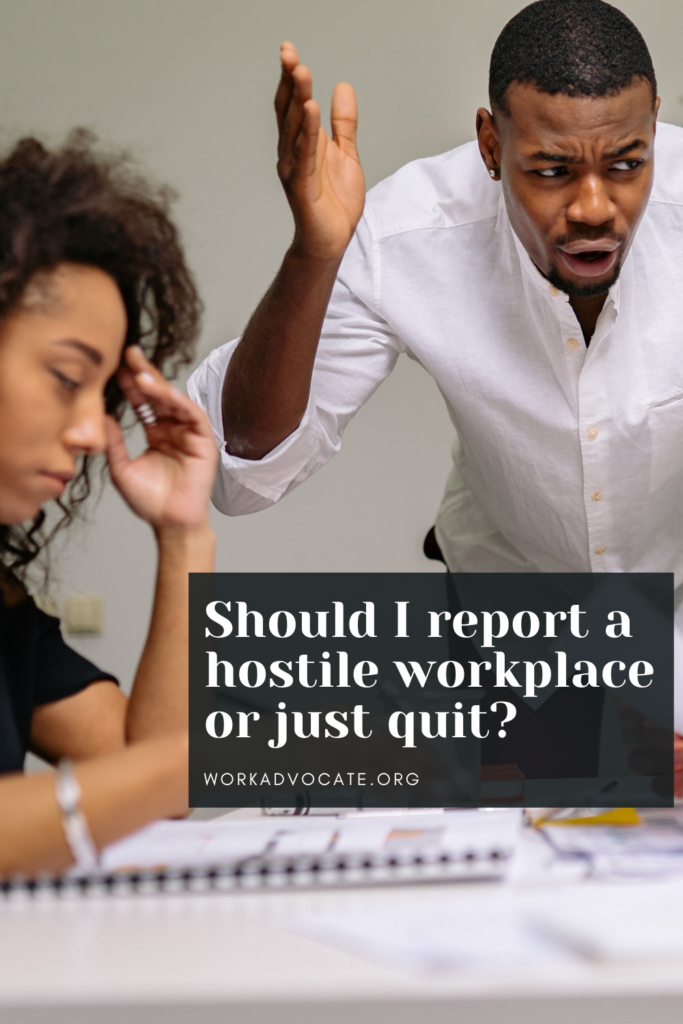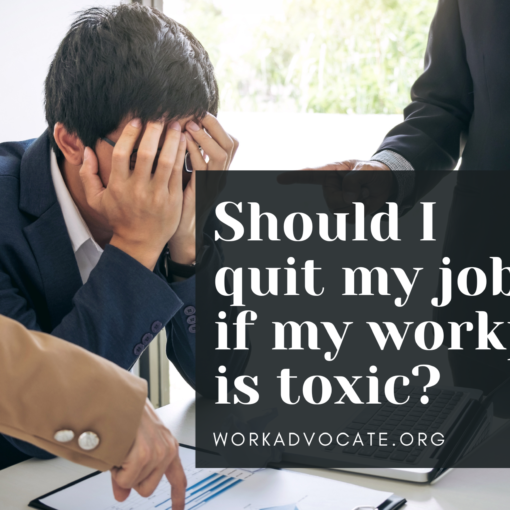
One of the most common questions victims ask is, “What happens after reporting workplace harassment?”
Experiencing harassment or discrimination at work is a deeply distressing situation.
It can leave you feeling isolated, scared, and unsure of what to do.
Why Reporting Workplace Harassment Matters:
While it can be intimidating, reporting workplace harassment is crucial for several reasons:
- Protect Yourself: Reporting is the first step towards stopping the harassment and creating a safer work environment for yourself.
- Protect Others: By speaking up, you may prevent others from experiencing the same mistreatment.
- Hold Your Employer Accountable: Employers have a legal obligation to investigate and address complaints of harassment and discrimination. Reporting can prompt them to take action and create a more respectful workplace culture.
- Exercise Your Rights: You have the right to work in a harassment-free environment. Reporting is a way to assert that right and seek justice.
How to Report Workplace Harassment Effectively:
- Document Everything: Keep a detailed record of all incidents, including dates, times, specific words or actions, witnesses, and how it affected you.
- Follow Company Policy: Review your employee handbook or other company documents for procedures on reporting harassment or discrimination.
- Decide Who to Report To: This might be your supervisor, HR representative, or another designated individual.
- Be Clear and Concise: Explain what happened, when it happened, and how it affected you. Stick to the facts and avoid emotional language.
- Ask for Specific Actions: Clearly state what you would like to see happen, such as an investigation, disciplinary action against the harasser, or a transfer to a different department.
- Keep a Record: Keep copies of all emails, letters, and other documentation related to your report.
Internal vs. External Reporting:
- Internal Reporting: Start by reporting the harassment internally to your employer. This gives them an opportunity to address the issue and take corrective action.
- External Reporting: If your employer fails to take action or if you feel uncomfortable reporting internally, you can file a complaint with the Equal Employment Opportunity Commission (EEOC) or your state’s fair employment practices agency.
Overcoming the Fear of Retaliation:
It’s natural to fear retaliation for reporting harassment or discrimination, but it’s important to remember that retaliation is illegal. If you experience any negative consequences after reporting, document them and report them to HR or the appropriate agency. There are laws in place to protect you.
Reporting workplace harassment is a courageous act that can lead to positive change for yourself and others. By speaking up, you can reclaim your power, protect your rights, and create a healthier work environment for everyone.
ACTION: If you’re ready to take the next step with detailed instructions on documenting and reporting harassment, get our guide The Hostile Workplace Defender .
Related Posts:




